Politics
Heavy rains kill at least 22 in Nepal, block roads
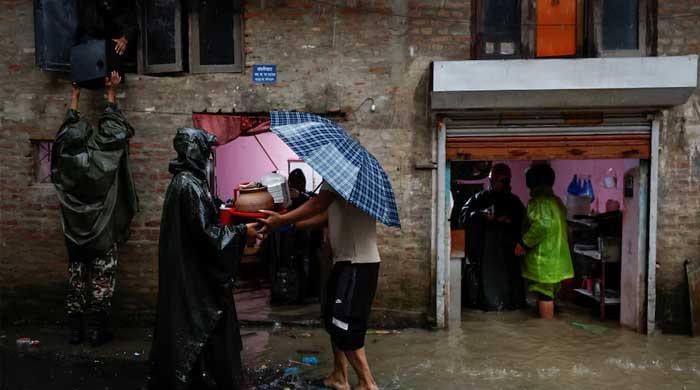
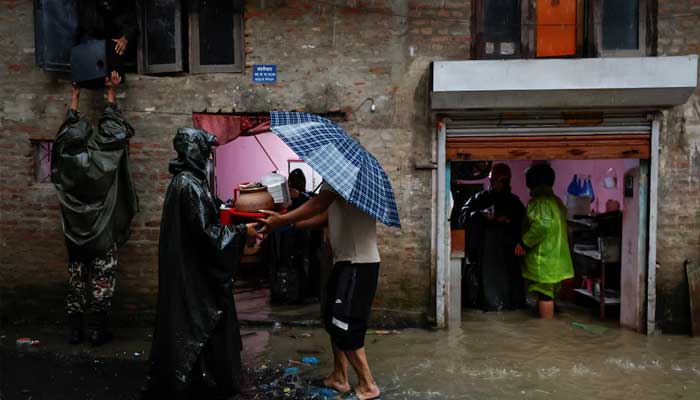
Heavy rains triggered landslides and flash floods, blocking roads, washing away bridges and killing at least 22 people in the last 36 hours in Nepal, officials said on Sunday.
Police spokesperson Binod Ghimire said that 18 people were killed in separate landslides in the Ilam district in the east bordering India. Three people were killed in southern Nepal in lightning strikes and one person died in floods in Udayapur district, also in eastern Nepal, he said.
Authorities said that 11 people were washed away by floods and have been missing since Saturday.
“Rescue efforts for them are going on,” Shanti Mahat, a National Disaster Risk Reduction and Management Authority (NDRRMA) spokesperson, told Reuters.
Several highways have been blocked by landslides and washed away by floods, stranding hundreds of passengers, authorities said.
“Domestic flights are largely disrupted but international flights are operating normally,” Rinji Sherpa, a spokesperson for Kathmandu airport said.
In southeastern Nepal, the Koshi River, which causes deadly floods in the eastern Indian state of Bihar almost every year, was flowing above the danger level, a district official said.
Dharmendra Kumar Mishra, district governor of Sunsari district, said water flows in the Koshi River were more than double normal.
Mishra said all 56 sluice gates of the Koshi Barrage had been opened to drain out water compared with about 10 to 12 during a normal situation, adding that authorities are “preparing to ban heavy vehicles from its bridge”.
In hill-ringed Kathmandu, several rivers have flooded roads and inundated many houses, cutting the temple-studded capital off from the rest of the country by road.
Hundreds of people die every year in landslides and flash floods that are common in mostly mountainous Nepal during the monsoon season which normally starts in mid-June and continues through mid-September.
Weather officials say rains are likely to lash the Himalayan nation until Monday and authorities say they are taking “maximum care and precautions” to help people affected by the disaster.
Politics
White House says Trump MRI was preventative, president in excellent health
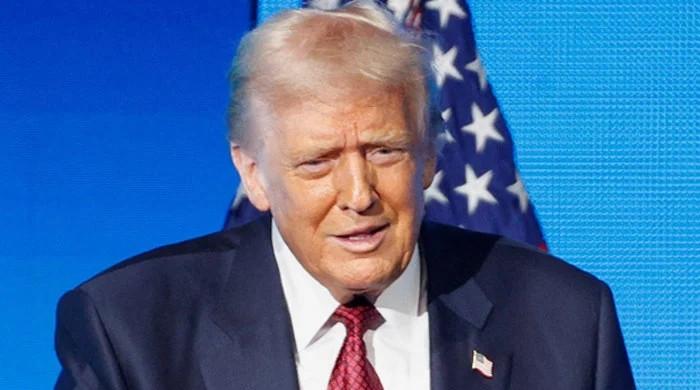
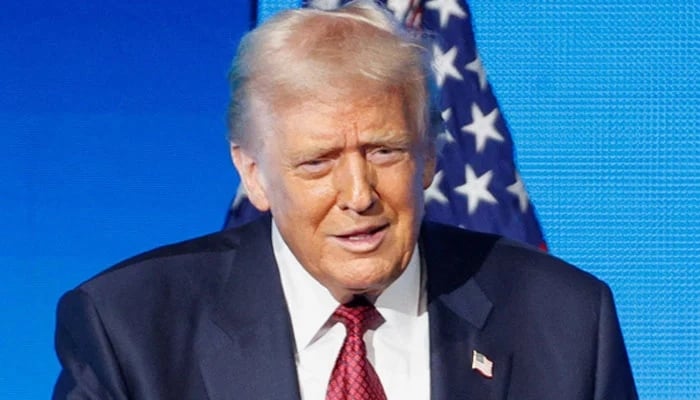
WASHINGTON: The White House has said that President Donald Trump is in good health, even as people continue to question how his age may affect his performance as the country’s most powerful man.
White House press secretary Karoline Leavitt said on Monday that a recent MRI conducted on President Trump was preventative in nature and revealed that he was in good cardiovascular health.
Speaking to reporters at a press briefing at the White House, Leavitt said men of Trump’s age benefited from such screenings.
‘President Trump’s cardiovascular imaging was perfectly normal, no evidence of arterial narrowing, impairing blood flow or abnormalities in the heart or major vessels,’ Leavitt said of the 79-year-old president.
‘The heart chambers are normal in size. The vessel walls appear smooth and healthy, and there are no signs of inflammation or clotting. Overall, his cardiovascular system shows excellent health. His abdominal imaging is also perfectly normal,’ Leavitt said.
Trump underwent a magnetic resonance imaging scan during a recent medical evaluation, but did not disclose the purpose of the procedure, which is not typical for standard check-ups. The lack of details raised questions about whether full information regarding the president’s health is being released in a timely fashion by the White House.
Trump is sensitive about his age and well-being. He personally attacked a female New York Times reporter on social media last week over a story she co-wrote examining the ways that Trump’s age may be affecting his energy levels.
Politics
Tajikistan says five Chinese nationals killed in cross-border attacks from Afghanistan in past week
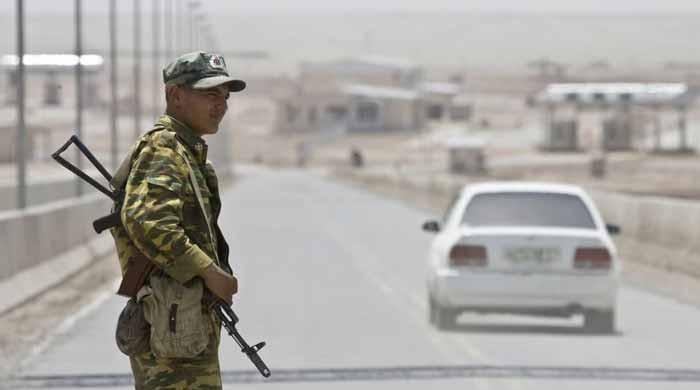
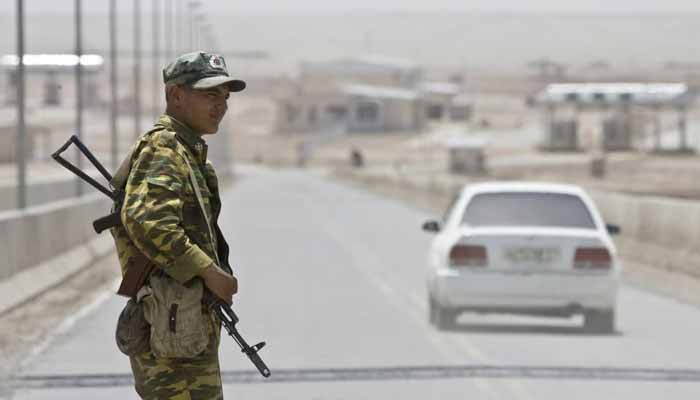
- China advises companies, personnel to evacuate border area.
- Embassy says Chinese citizens targeted in armed attack on Sunday.
- Another border attack on Friday killed three citizens: embassy.
Five Chinese nationals have been killed and five more injured in Tajikistan in attacks launched from neighbouring Afghanistan over the past week, Tajik authorities and China’s embassy in the Central Asian country said on Monday.
China’s embassy in Dushanbe, the capital, advised Chinese companies and personnel to urgently evacuate the border area.
It said that Chinese citizens had been targeted in an armed attack close to the Afghan border on Sunday. On Friday, it said that another border attack — which Tajik authorities said had involved drones dropping grenades — had killed three Chinese citizens.
Tajikistan, a mountainous former Soviet republic of around 11 million people with a secular government, has tense relations with the Taliban authorities in Afghanistan. It has previously warned of drug smugglers and illicit gold miners working along the remote frontier.
China, which also has a remote, mountainous border with Tajikistan, is a major investor in the country.
There was no immediate response on Monday from the authorities in Afghanistan to the Tajik statement.
But Afghanistan’s foreign ministry last week blamed an unnamed group, which it said was out to create instability, and said it would cooperate with Tajik authorities.
Tajik President Emomali Rahmon’s press service said on Monday that Rahmon had met with the heads of his security agencies to discuss how to strengthen border security.
It said that Rahmon “strongly condemned the illegal and provocative actions of Afghan citizens and ordered that effective measures be taken to resolve the problem and prevent a recurrence of such incidents.”
Tajikistan endured a brutal civil war in the 1990s after independence from Moscow, during which Rahmon initially rose to power. The country is closely aligned with Russia, which maintains a military base there.
Millions of Tajiks, a Persian-speaking nation, live across the border in Afghanistan, with Tajikistan historically having backed Afghan Tajiks opposed to the Taliban.
Politics
Indian man kills wife, takes selfie with dead body
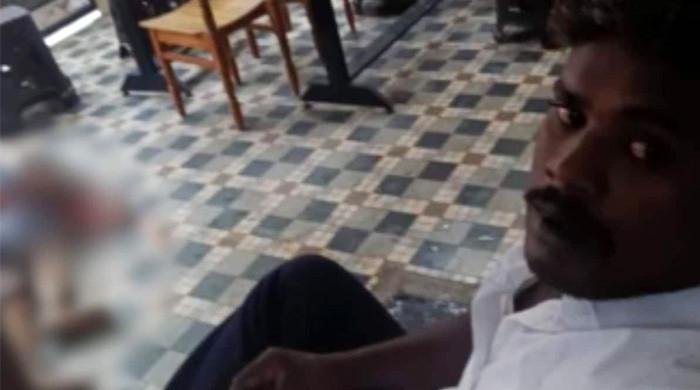

A man in India’s south brutally killed his estranged wife at a women’s hostel and took a selfie with her dead body, according to NDTV.
The victim, identified as Sripriya, employed at a private firm in Coimbatore, Tamil Nadu, had separated from her husband, Balamurugam, who was from Tirunelveli.
Police said the suspect arrived at the hostel on Sunday afternoon, concealing a sickle in his clothes, and was seeking to meet her.
They had an argument soon after the couple met, and the feud turned into a violent attack by Balamurugan, who drew the sickle and hacked the woman to death.
Furthermore, the police said he then took a selfie with her body and shared it on his WhatsApp status, accusing her of “betrayal”.
The incident spread panic and chaos in the hostel.
Following the brutal murder, the suspect did not escape from the spot but waited until the police arrived, and he was arrested at the crime scene. The murder weapon was recovered.
The initial investigation suggested that he suspected his wife of being in a relationship with another man.
-

 Sports1 week ago
Sports1 week agoWATCH: Ronaldo scores spectacular bicycle kick
-

 Entertainment1 week ago
Entertainment1 week agoWelcome to Derry’ episode 5 delivers shocking twist
-

 Politics1 week ago
Politics1 week agoWashington and Kyiv Stress Any Peace Deal Must Fully Respect Ukraine’s Sovereignty
-

 Business1 week ago
Business1 week agoKey economic data and trends that will shape Rachel Reeves’ Budget
-

 Tech6 days ago
Tech6 days agoWake Up—the Best Black Friday Mattress Sales Are Here
-
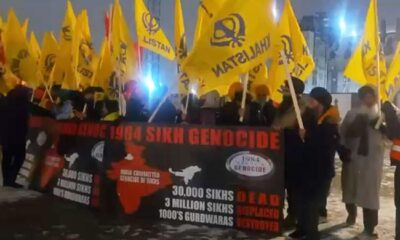
 Politics1 week ago
Politics1 week ago53,000 Sikhs vote in Ottawa Khalistan Referendum amid Carney-Modi trade talks scrutiny
-

 Fashion1 week ago
Fashion1 week agoCanada’s Lululemon unveils team Canada kit for Milano Cortina 2026
-

 Tech1 day ago
Tech1 day agoGet Your Steps In From Your Home Office With This Walking Pad—On Sale This Week






